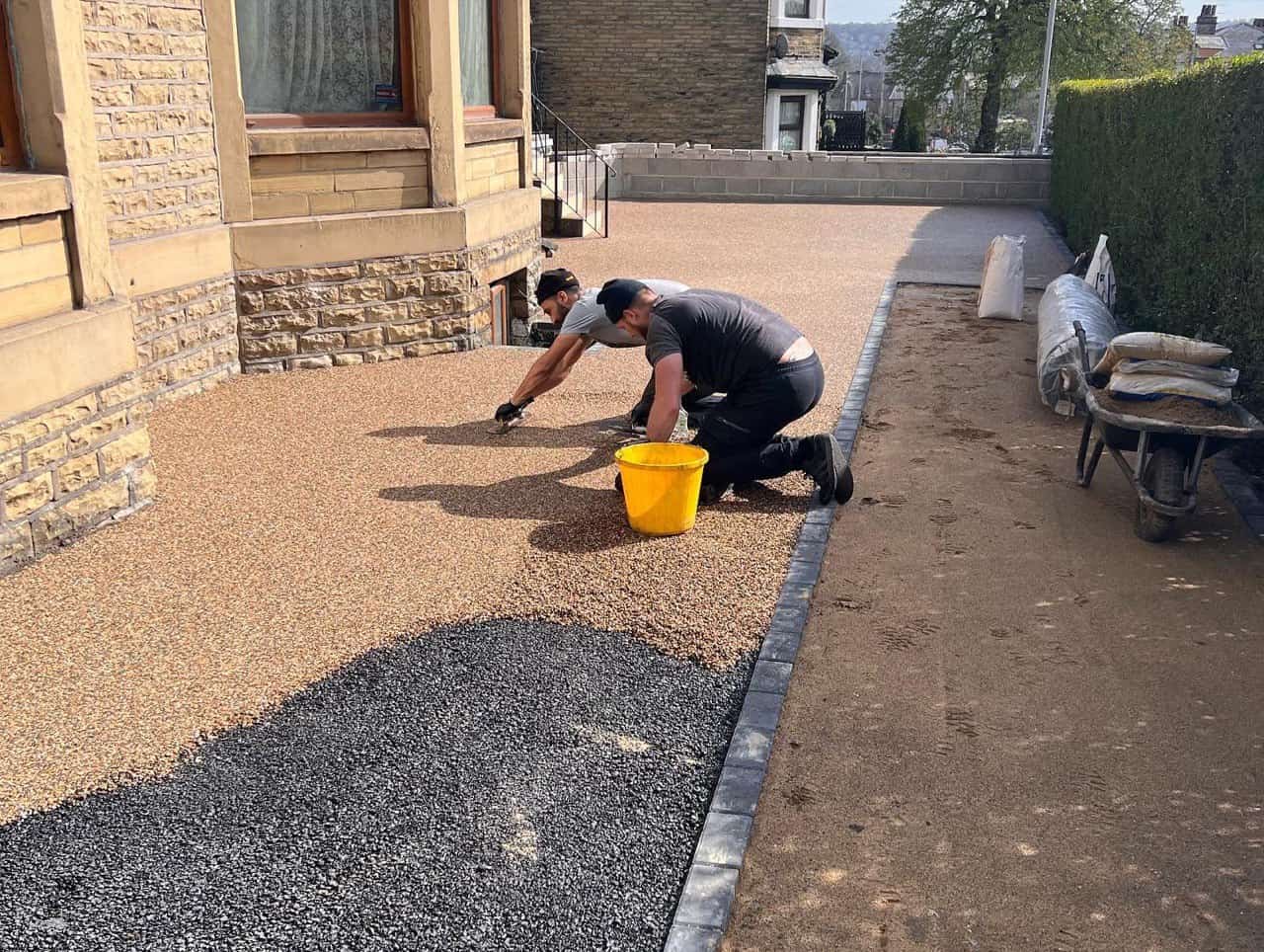
Introduction: When it comes to enhancing your home’s curb appeal, choosing the right driveway material is a crucial decision. Sheffield Resin Driveways recognises that homeowners have various options to consider. In this blog post, we’ll compare resin-bound driveways to other popular paving materials to help you make an informed choice that suits your needs and preferences.
Resin Bound Driveways
Pros:
- Aesthetically Pleasing: Resin-bound driveways offer a visually stunning finish. They come in various colours and patterns, allowing for customisation that complements your home’s exterior.
- Permeability: Resin-bound surfaces are porous, allowing rainwater to drain through, reducing surface water runoff and helping prevent flooding.
- Low Maintenance: These driveways are relatively low maintenance, requiring occasional cleaning and resealing to maintain their appearance.
- Durability: Resin-bound driveways are durable and resistant to cracks, weeds, and frost, ensuring a long-lasting and reliable surface.
- Comfortable: The smooth surface is comfortable for walking and gentle on tires, making it a suitable choice for homes with young children or elderly residents.
Cons:
- Professional Installation Required: Achieving a high-quality finish with resin-bound driveways requires professional installation. DIY installation is not recommended.
- Initial Cost: While the long-term maintenance costs are lower, the initial installation cost of resin-bound driveways can be higher than other materials.
Concrete Driveways
Pros:
- Versatile Design: Concrete driveways can be customised with various finishes, such as stamped patterns or exposed aggregate, providing design versatility.
- Durability: Concrete driveways are known for their durability and resistance to wear and tear.
- Low Maintenance: They require minimal maintenance, mainly occasional sealing and cleaning.
- Affordability: Concrete driveways can be a cost-effective choice compared to certain alternatives.
Cons:
- Cracking: Concrete driveways are prone to cracking over time, which can be unsightly and require repairs.
- Surface Water Runoff: They are generally not permeable, leading to surface water runoff and potential flooding issues.
- Limited Color Options: While customisation is possible, the colour options for concrete driveways may be more limited than resin-bound surfaces.
Block Paving
Pros:
- Visual Appeal: Block paving offers an attractive and traditional appearance with various patterns and colour choices.
- Ease of Repairs: Individual blocks can be replaced if damaged, making repairs relatively straightforward.
- Permeable Options: Permeable block paving provides some water drainage level.
Cons:
- Weed Growth: Weeds can grow between the gaps in block paving, requiring regular maintenance.
- Uneven Surface: Over time, block paving can become uneven due to settlement or wear, potentially creating trip hazards.
- Labour-Intensive Installation: Installation can be labour-intensive, especially for intricate patterns, which may increase costs.
Conclusion: Choosing resin-bound driveways, concrete driveways, and block paving depends on your priorities and budget. Resin-bound driveways offer a unique blend of aesthetics, durability, and permeability, making them an attractive choice for many homeowners. Consulting with professionals like Sheffield Resin Driveways can help you make the best decision for your needs, ensuring a beautiful and functional driveway that complements your home.
Call us on: 0114 6972811
Click here to find out more about Sheffield Resin Driveways
Click here to complete our contact form and see how we can help with your driveway needs.